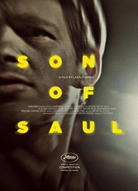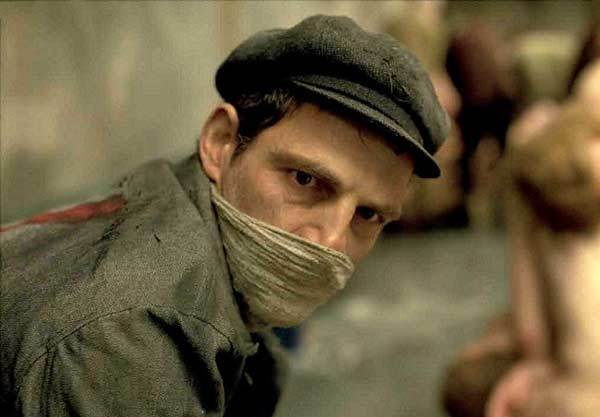NYFF: The Oscar Contender "Son of Saul"
 Friday, October 9, 2015 at 12:13PM
Friday, October 9, 2015 at 12:13PM Manuel here reporting from the New York Film Festival on Hungary's Oscar submission, a powerful debut film...
 The Holocaust film is, as historical subgenres go, perhaps the most well-worn. From John Ford and George Stevens’ documentary footage of the camps liberation all the way through Spielberg’s Schindler’s List and Benigni’s Life is Beautiful, cinema has been irrevocably tied to our cultural remembrance of that most barbaric killing machine. Cinema’s ability to record, to bear witness, has no doubt played a central role in this artistic canon. Of course, at the heart of the cinematic project of the Holocaust lie conflicting and controversial ethical questions. From Theodor Adorno’s “There is no poetry after Auschwitz” dictum to storied arguments about the validity and usefulness of recreating the images of Western civilization’s most gruesome chapter, directors, victims, and historians have asked plenty of hard to answer questions.
The Holocaust film is, as historical subgenres go, perhaps the most well-worn. From John Ford and George Stevens’ documentary footage of the camps liberation all the way through Spielberg’s Schindler’s List and Benigni’s Life is Beautiful, cinema has been irrevocably tied to our cultural remembrance of that most barbaric killing machine. Cinema’s ability to record, to bear witness, has no doubt played a central role in this artistic canon. Of course, at the heart of the cinematic project of the Holocaust lie conflicting and controversial ethical questions. From Theodor Adorno’s “There is no poetry after Auschwitz” dictum to storied arguments about the validity and usefulness of recreating the images of Western civilization’s most gruesome chapter, directors, victims, and historians have asked plenty of hard to answer questions.
Does the depiction not merely replicate the dehumanization on which that enterprise depended? Is there a way to narrativize this barbaric act without simplifying history? Can cinema’s images ever do anything more than ring hollow when compared with the immensity of human life lost?
If all of this sounds heady as an intro to a review of László Nemes’s debut film Son of Saul, you should’ve heard leading man (and poet) Géza Röhrig and his director talk at length about these very issues while quoting Primo Levi at the press conference a few days ago...



